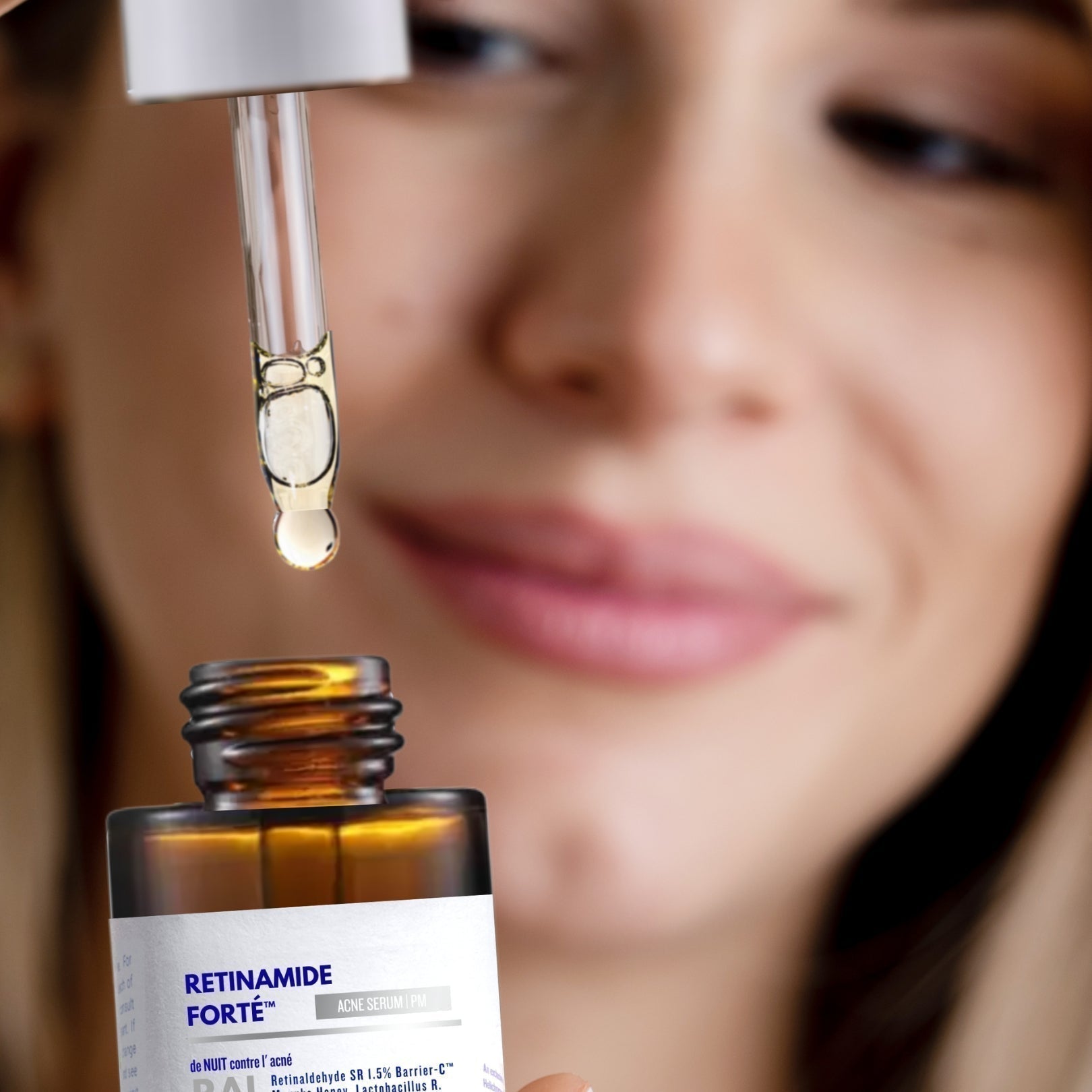tretinoin and hair loss for women
Tretinoin is known as the holy grail for glowing skin, the supreme ingredient that outshines all others when it comes to minimising fine lines and lightening dark spots.
Lately, there are rumours this magical ingredient can also regrow hair. Is it really true? If so, why are women not growing tonnes of facial hair on long term tretinoin treatment?
This article will see what science has to say about tretinoin and hair growth.
What is Tretinoin?
Tretinoin is a Vitamin A derivative and is one of the most researched retinoid in dermatology for over half a century. Tretinoin was first FDA approved for the treatment of acne vulgaris in 1971 and then for photoaging in 1995. In Australia, tretinoin is available under the brand names Retrieve and Stieve-A (now discontinued).
The exact mechanism of Tretinoin (all trans retinoic acid) is not well understood but it is known to act on α, β and γ retinoic receptors. Once bound to these receptors on the skin, Tretinoin is known to exert profound effects by:
- Stimulating new collagen production so the skin looks more plump over time,
- Decreasing epidermal melanin in post-inflammatory hyperpigmentation,
- Inhibiting skin metalloproteinases (the enzyme that breaks down collagen),
- Stop skin cells from sticking together and therefore the formation of comedones, and
- Increasing skin cell turnover, giving the skin that "tret glow".
Although there are thousands of clinical studies completed for Tretinoin and its effects on the skin, there are limited data for the use of Tretinoin for hair loss.
Clinical studies for Tretinoin and hair loss
This is what we know about tretinoin and hair loss so far; and how tretinoin can be used for hair growth:
1. Tretinoin alone may regrow hair but there is still limited data. One small study published by Bazzano in 1986 compared topical Tretinoin alone and in combination with 5% minoxidil in 56 subjects with androgenetic alopecia. After 1 year, the combination of topical Tretinoin with 5% Minoxidil resulted in terminal hair regrowth in 66% of the subjects studied compared to 58% in the Tretinoin only subjects.
2. Tretinoin can help reduce the dosing schedule. One notable study published by Shin in 2007 showed that combining Tretinoin 0.01% with Minoxidil 5% once daily showed similar results to using Minoxidil 5% twice a day.
3. Tretinoin can help non-responders to Minoxidil. Some studies suggest Tretinoin can help upregulate follicular sulfotransferase enzymes to enhance the effectiveness of minoxidil.
How does Tretinoin help with hair loss?
Tretinoin is believed to help regrow hair by:
- Increasing vascularisation (the growth of new blood vessels and therefore blood flow),
- Enhance the absorption of other hair growth ingredients, and
- Enhance the effectiveness of Minoxidil by upregulating sulfotransferase enazymes.
Can Tretinoin cream cause facial hair in women?
It is found the application of tretinoin cream can increase the absorption of other hair promoting ingredients such as minoxidil, however, the clinical evidence on tretinoin alone for facial hair growth is still very limited and the data is inconsistent.
Tretinoin cream is found to increase scalp hair growth and also beard growth in men but there are no studies completed on tretinoin and facial hair growth in women. That said, numerous isolated anectodal evidence suggests tretinoin 0.05% can cause increase facial hair in some women, but the exact mechanism is still not well understood.
What to do if you experience an increase in facial hair growth with topical tretinoin.
Hirsutism is a condition in women characterised by excessive growth of dark, coarse hair in areas where men typically have hair. This includes the upper lip, the beard region, chest and back. Hirsutism is often linked to abnormally high levels of androgen in women. If ceasing the use of topical tretinoin cream is still causing facial hair growth, consult your doctor.



